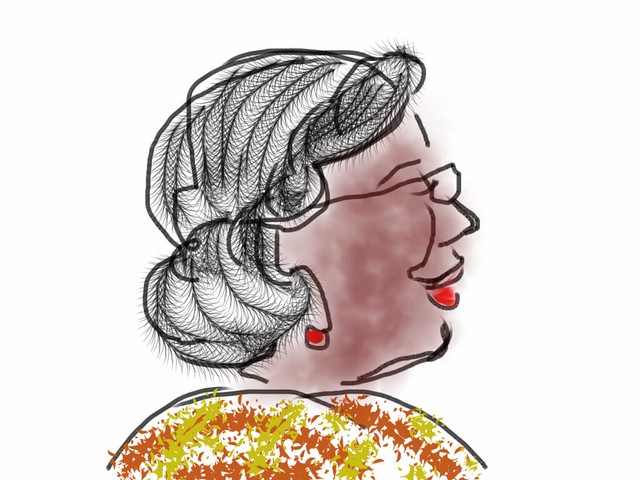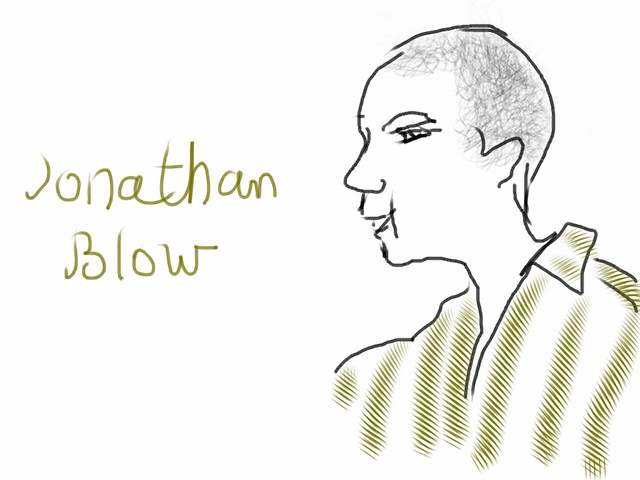Art Game or Game Art?
They say the fastest growing population of video game players are women over 60.
“Oh my God I’ll never get there!” a woman in the back of the room was clearly overwhelmed by the though of disappointing her demographic.
“Well, that’s because you aren’t 60 yet,” Marian Godfrey, one of the organizers of “Don’t Get Pwnd! A Video-Gaming Salon For Grantmakers” held at the Grantmakers In The Arts 2011 Conference, smiled soothingly as we all collegially chuckled, relieved that we all had a little more time to spend with our Playstations. “We’ll throw you a party in an arcade.
“My goal, as a game designer, is to create a mind expanding experience for people with rich inner lives.”
Such a game would not be a time eating/time filling activity. It would include:
- A system of rules
- Simulation
- A tiny toy version of our universe
- What if?
- A recreated new history of the world
Interesting objective for someone who gained financial success from Braid, his video game about manipulating time. Jonathan Blow, an independent video game designer, describes it as an engaged exploration of ethics and consequences.
Even more interesting.
Jon began making small independent art games around 1996, riding the video wave. Several years ago, he founded the Indie Fund, a source of funding with the goals of supporting people who want to make art games and to move the field forward. This fund is intentional user friendly, awarding grant amounts ranging from 10k to 200k with an open submission process and a simple application asking for:
- A short description of the game describing what the game is and how you interact with it
- A YouTube video of a playable prototype
- He looks for skill in making games and something he calls the “quality standard gene” which he says is, “very important and rare to find.”
- Of five funded projects, two came from the open process. The rest were people he knew from the field.
- There is a low acceptance rate, 1% to a third of 1%.
What is a video game?
Definition: mainstream video games are screen visuals that react with viewers’ input. In coin-op games, a player receives a fun experience in exchange for coins. A skinner box that runs slot machines gives rewards in unknown amounts at unknown times to a player which sets off triggers that can become addictive. Is this ethically bankrupt?
Definitely intriguing: the action that happens between frames of a comic book
Alyce Myatt, director, Media Arts, NEA, shook her head and said with a sigh, “The cycle is the same. Independent films experienced a similar shift.”
The NEA now funds:
- games
- mobile apps
- satellite delivered content
- electronic art delivery
About 360 proposals were received with requests ranging from 15k to 200k. “The process got people thinking” said Alyce. She was delighted to see applications come from across disciplines demonstrating how media is embedded in artmaking and in growing audiences.
“Philanthropic dollars are the only risk capital in this country.”
There are several challenges:
- Production and development – attending game development conferences are expensive, admission ranging between 2k to 4k. Alyce stressed how important it is for grantmakers to be at these gatherings. Is there funding for travel to conferences such as SXSW and Indie K?
- Distribution – a marketing plan takes time and intense effort. A game faces the challenge of bottlenecks when trying to get to the market. Alyce suggested exploring the possibility of getting a graduate student with marketing skills. Is there funding for marketing fellowships?
- Open video movement – this helps to get games out to larger audiences. Grantmakers should be funding these initiatives.
Questions from the bewildered:
How deeply can we understand the artistic process and value of making games when making funding decisions? How can we learn from this?
Jon:
Play games. Don’t get hung up in the “tooliness” of the tools. It is better to allow someone to explore, broaden an experience, knowledge, context and be immersed in it.
Alyce:
We need an independent nonprofit game community and public media for the stability and the benefit of society.
Ron:
Think of games as novels that ask big questions of humanity and the way we see each other
About the Author: Hoong Yee Lee Krakauer writes about how to be a nimble nonprofit, make life creative and make a difference at www.hoongyee.com.
She is also the Executive Director of the Queens Council on the Arts. Hoong Yee can be found surfing in the Rockaways whenever there are waves.
Do you want to know the fears, visions of perfect worlds and world changing advice of your peers and keynote speakers?
I have a special bonus post for you of interviews I conducted with people during the conference. Just leave me a comment with your email or better still, subscribe at www.hoongyee.com and get my interview post and new style notes for people who change the world delivered to your inbox.


